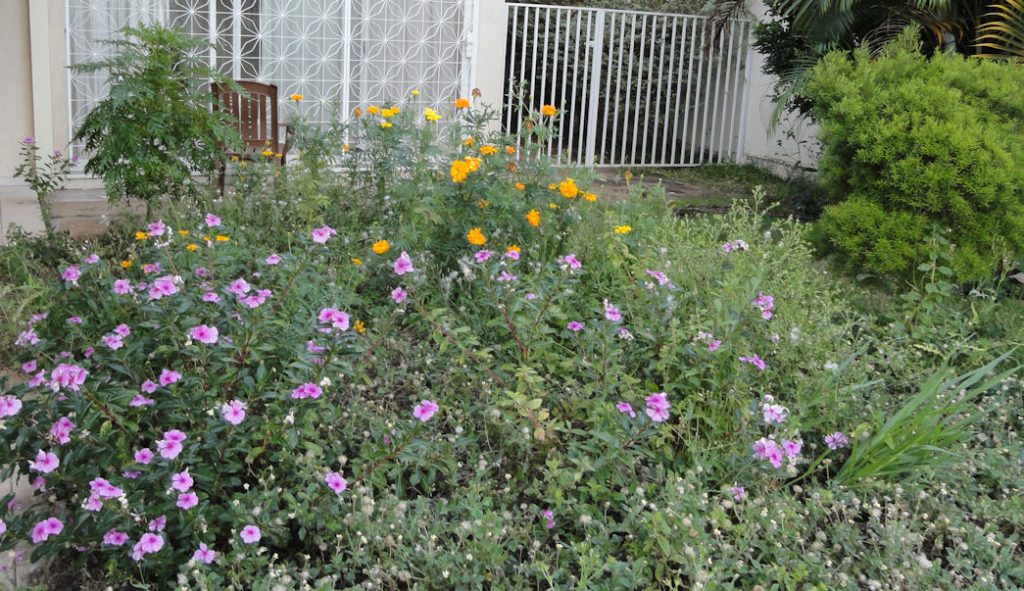
We are traveling around Brazil to talk to students who returned from SwB scholarships. Our first group was in Sao Paulo at USP.
The group was positive overall. The first young woman to speak was eager to let us know how satisfied she was. People were so nice to her, she said, from the time she applied, through the special visa day until she got back to Brazil. The woman next to her also voiced her approval, but added that in her case it was particularly important that the program reached into the interior, where she was studying. One of the goals of the Science w/o Borders program is to reach into previously under-served populations. The geographical part seems to be working.
Both the ease of the program and the reach became themes. U.S. universities are uniquely suited to welcome students from around the world. We have experience in our own vast country of people coming to university from far away. Our universities have dorms, which is not a common characteristic worldwide, and we have teams in place to help students adjust. A couple students spoke up about the quality of the dorms. Like hotels, they said. They were impressed by the luxury of college campuses, with their gyms, theaters and swimming pools. Perhaps these kids should talk to our kids to let them know what a great thing we have going. Some kids who had gone to the University of Nebraska actually expressed their gratitude for not having much choice of where they would go. They were unfamiliar with Nebraska and would never have chosen it, give a wide choice. But they thought the program was excellent and they loved Nebraska because of its friendly and welcoming people.
One thing that struck several students was the big difference between the feeling on American campuses. In Brazil they have lots of class time and less homework. In the U.S. they have less time in class but expect to study more. They come to conclusions themselves and praised the open atmosphere. Our surveys indicate that SwB kids did well in U.S. universities and that among many their grades improved. A few kids explained from their own experience in the U.S. that classes were more challenging and more rewarding. They got better grades because they became more committed. Study was their choice and they reveled in it. It may also be that they do better because the trip to the U.S. represented a clean break with the past. They were free from many of the old strictures. The improvements in performance were most noticeable among the students who did less well in Brazil. Again, this is subject to interpretation. It could just be that they had more upside potential, but it obviously didn’t hurt that motivation improved. They didn’t know whether to characterize American punctuality and attention to deadlines as a positive or not. It was harder. One young man commented that you get your assignment and everybody is expected to have it done on time. Excuses are ignored for the most part. The same young man mentioned the downside that pot-smoking was more common on campus in the U.S. He didn’t really say that he opposed it, but he did say that he was afraid to do it since the stakes were high for him and Brazil is he was caught messing up.
This led to a discussion of quality of students. Our first group of Brazilians was high quality, but there was some discussion of the future. The bigger challenge, they thought, was not academics but maturity and temperament. A SwB visit is often the first time a Brazilian young person will have been away from home. Some will be sorely tempted by the vices mentioned above, or maybe they will just cut class. Or maybe they will suffer from melancholy and homesickness. Maybe all of these things in some measure. There were few negatives in these shouts of hallelujah. Most recognized the program was started only a short time ago and rolled out quickly. Paradoxically, there were complaints of too much and too little communication. I guess the general idea was that there was some confusion. Much of this is now cleared up. Another complaint was in the nature of internships. It is hard for some people to get them. I don’t think this is a completely solvable problem. It is hard to get internships for Americans too. There is a lot of competition sometimes. There is little that we could and even less that we should do to help Brazilians out compete Americans and others. Schools are making information available and the Brazilian authorities are working with firms. This is as good as it will get.
Many in the group were happy to learn that they could apply to the program again in graduate school. This is also what many American schools want.
The first round of SwB was a success. We have seen a mutual enchantment. The Brazilians love the American schools and the American schools love to have them. So far, so good.
I have to caution that focus groups are not a statically valid way to measure opinions. They are good for generating ideas and making impressions, but we need to be careful that we don’t fall victim to availability bias, i.e. crediting information more because it is easy to get. But in this case, the ideas from the focus group tracked with survey data, so I feel confident in my impressions.
My picture up top is my front yard. I have not mowed the lawn since May of last year. Instead, I have been gathering seeds from flower beds I passed and tossing them around. This is what I have. I like it better than the manicured lawn.
